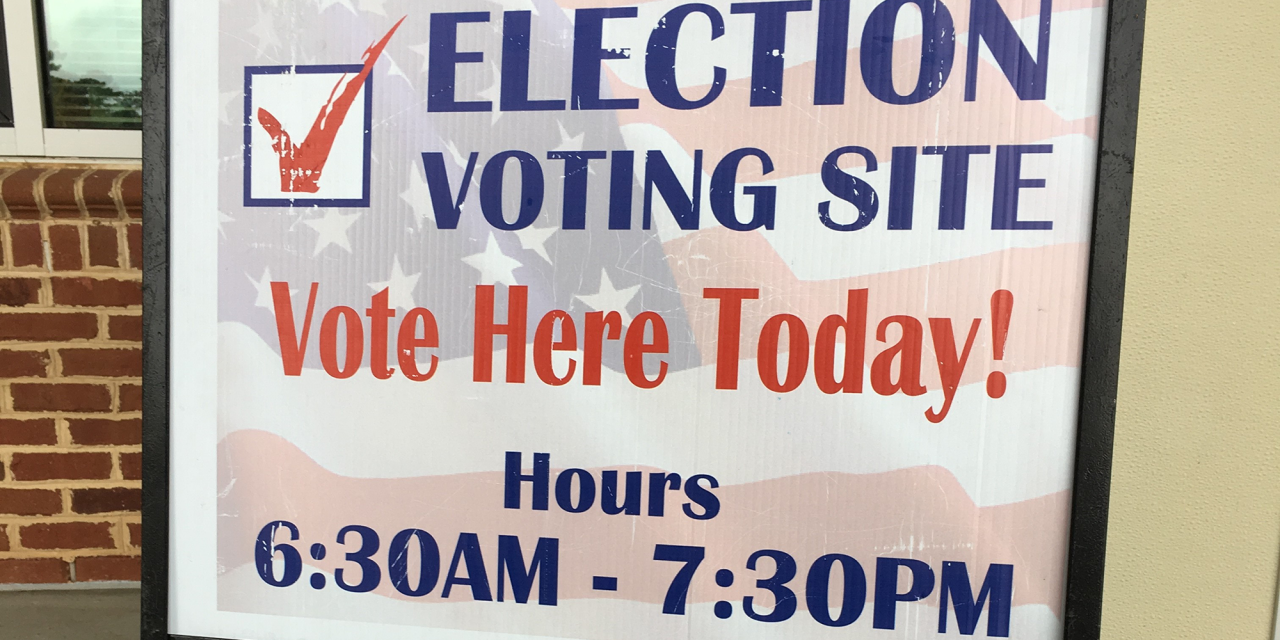Maria Palmer helped register people to vote in Orange County before the 2018 general election. But when she tried to convince people who hadn’t registered, she says she often got the same response.
“People would tell me, ‘What’s the point? We know who’s going to be elected; there’s not any competition. It’s going to be a Democrat,’” Palmer says. “And I started helping other districts, going outside Orange County to knock on doors, and I heard the same thing. ‘What’s the point? The Republican is going to win here.’”
Palmer, who is a former Chapel Hill town council member, decided to act. Having legal experience from advocating against the state’s voter ID legislation, she took her case to court with eight other plaintiffs.
“We talked to our lawyers and said, ‘can’t we do something,’” she said. “Some people are under the impression that this is a Washington think tank coming to North Carolina and stirring things up, but this is grassroots.”
After a federal district court ruled twice in favor of Palmer and Common Cause in 2018, North Carolina Republicans appealed the decision to the US Supreme Court. On Tuesday, oral arguments will begin in the case as the justices begin to determine whether these partisan gerrymandering actions violate the Constitution.
In addition to the North Carolina case, the Supreme Court will also hear oral arguments for the Maryland Democratic gerrymandering case on Tuesday. These cases come after the court ruled last June that plaintiffs in the Wisconsin gerrymandering case Gill v Whitford failed to show their votes were clearly affected by the state’s districting map.
Both new cases look to have an impact on the redistricting planned after the 2020 U.S. Census. If the Supreme Court rules in Common Cause and Palmer’s favor, it will also set a precedent for whether parties can explicitly gerrymander based on political lines.
No matter the court’s decision, Palmer says, it’s not too late for North Carolina’s state government to create a system preventing partisan voting districts.
“We can have a non-partisan commission that draws the district,” she says. “We can do away with this crazy gerrymandering, because it’s wrong no matter who does it. We can ensure that it doesn’t happen, and we will continue to fight [despite] whatever happens at the Supreme Court.”
Palmer won’t be making the trip to DC for the oral arguments, but says she feels like enough people are behind her cause that she’s confident their side will be heard.
“I don’t feel like I have to be there, we are well-represented,” Palmer says. “I will be just happy with a good outcome.”
The Supreme Court’s decision on Rucho v. Common Cause is expected in June.
Related Stories
‹
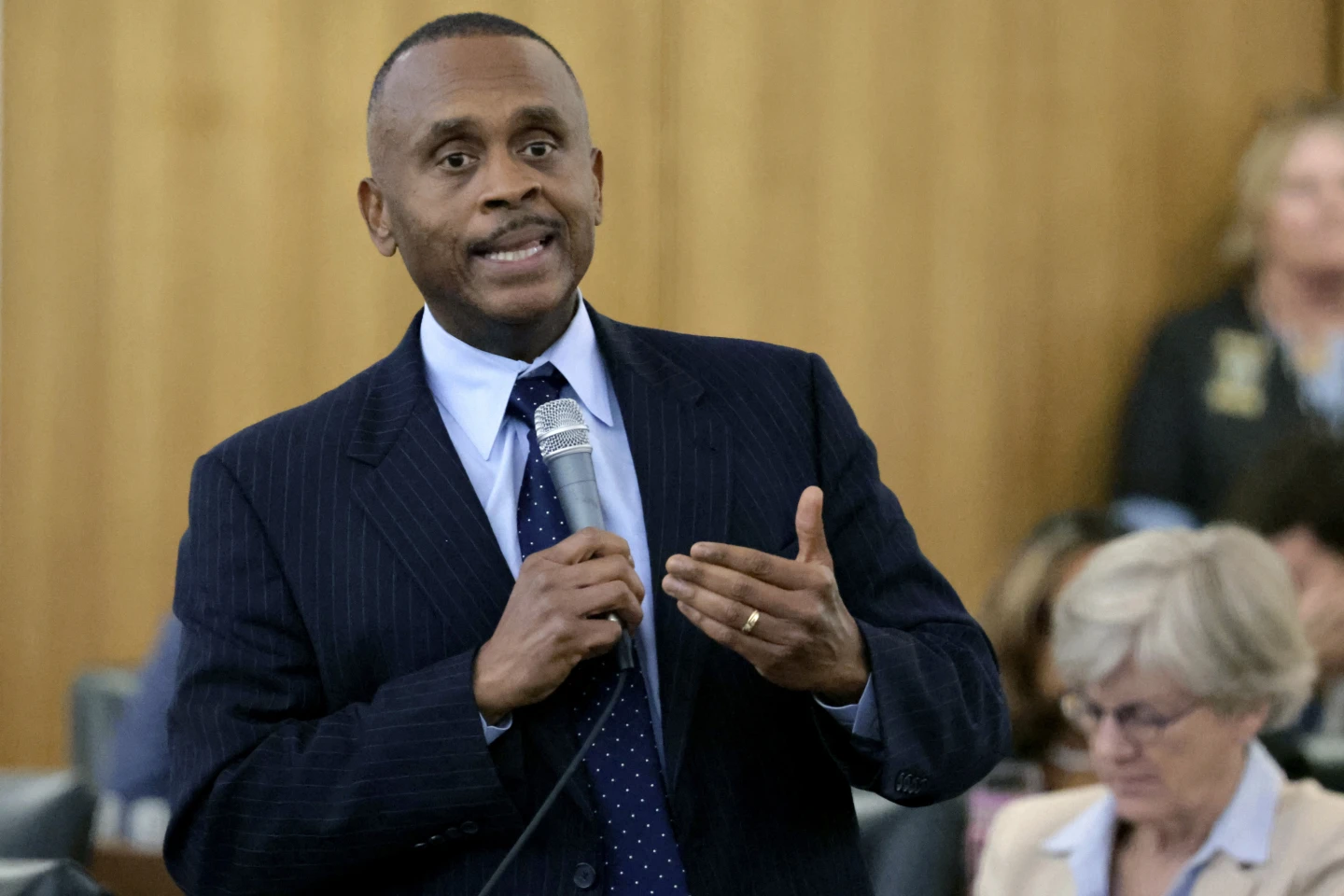
NC House Minority Leader Shares Thoughts on Latest Round of Redistricting and MapsRep. Robert Reives II discussed North Carolina's latest redistricting efforts and his concerns over the state's lack of checks and balances.
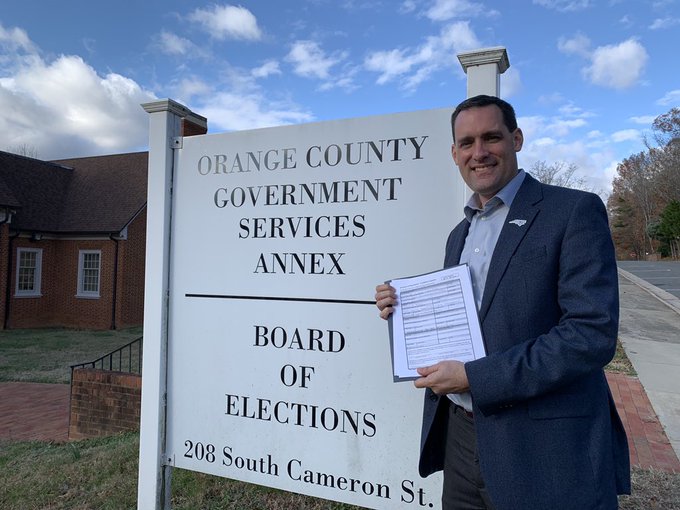
Rep. Meyer Preparing for Re-Election Campaign, Urges Other Democratic Candidates to RunOn the day filing opened for state house and senate representatives, House District 50 representative Graig Meyer filed for re-election to his fifth term. Meyer, who represents most of Orange County except for Chapel Hill and Carrboro, has been in North Carolina’s House of Representatives since 2013. He says he’s motivated by his hope to […]

Public Shares Concerns Over Gerrymandering, Redistricting Reform with LawmakersThe process to redraw North Carolina’s congressional maps is still undecided after a joint committee on redistricting met over the course of two weeks. As the legislature continues to debate over which map to use and whether to reform the redistricting process, they listened to public’s concerns about gerrymandering and fair districts on Wednesday. The […]
![]()
NC GOP Seeks Moving Congressional Map Case to Federal CourtNorth Carolina Republican legislative leaders are trying to move a lawsuit challenging the state’s congressional map drawn in 2016 from state court to federal court. The GOP lawmakers filed a notice Monday in the partisan redistricting litigation that voters filed last month in Wake County court, which has been ruled and upheld that state lawmakers […]
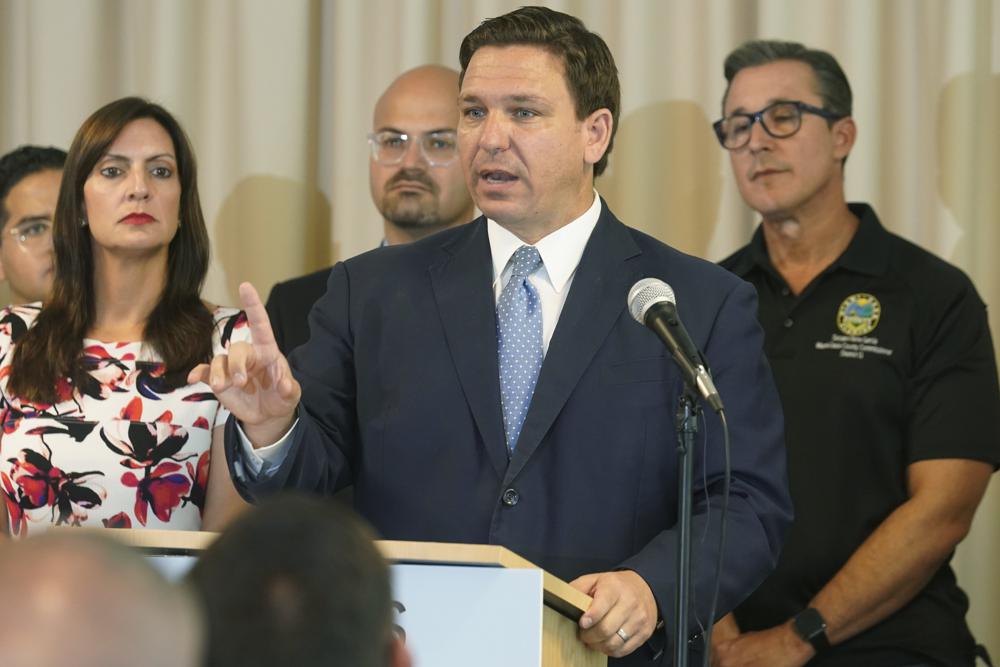
Florida Starts Redistricting Talks in a Growing Battle for House Control in 2026 ElectionsFlorida’s Republican-controlled House is holding the first meeting of its select committee on congressional redistricting Thursday, as the state becomes the latest to consider redrawing electoral maps.
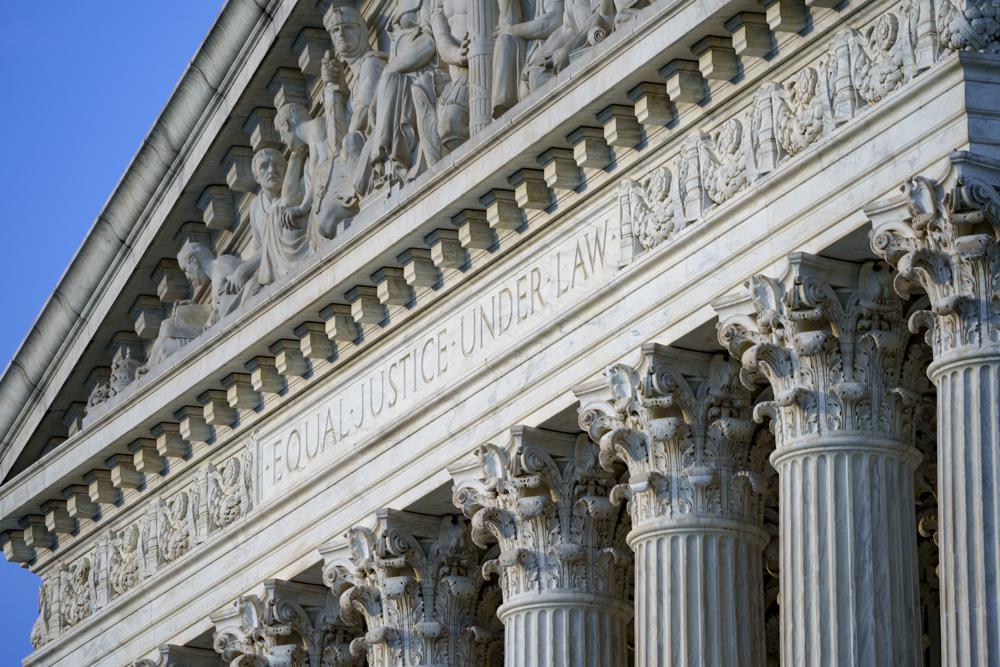
Supreme Court Seems Inclined to Limit Race-Based Electoral Districts Under the Voting Rights ActThe Supreme Court appeared ready to gut a key tool of the Voting Rights Act that's battled racial discrimination in voting for 60 years.

Supreme Court Seems in No Hurry To Rule on Trump Plea to Rein In Judges Over Birthright CitizenshipThe Supreme Court seems to be in no hurry to address the ability of a single judge to block a nationwide policy order by President Trump.
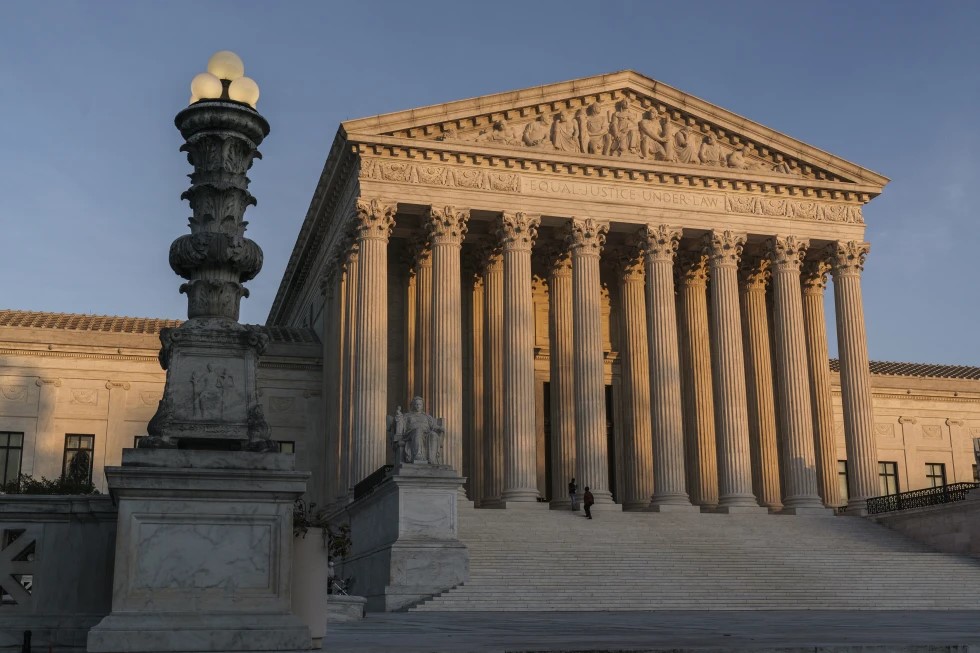
Trump’s Election Could Assure a Conservative Supreme Court Majority for DecadesWritten by MARK SHERMAN and LINDSAY WHITEHURST WASHINGTON (AP) — Donald Trump has already appointed three Supreme Court justices. In his second term, he could well have a chance to name two more, creating a high court with a Trump-appointed majority that could serve for decades. The decisive outcome spares the court from having to wade into election disputes. […]
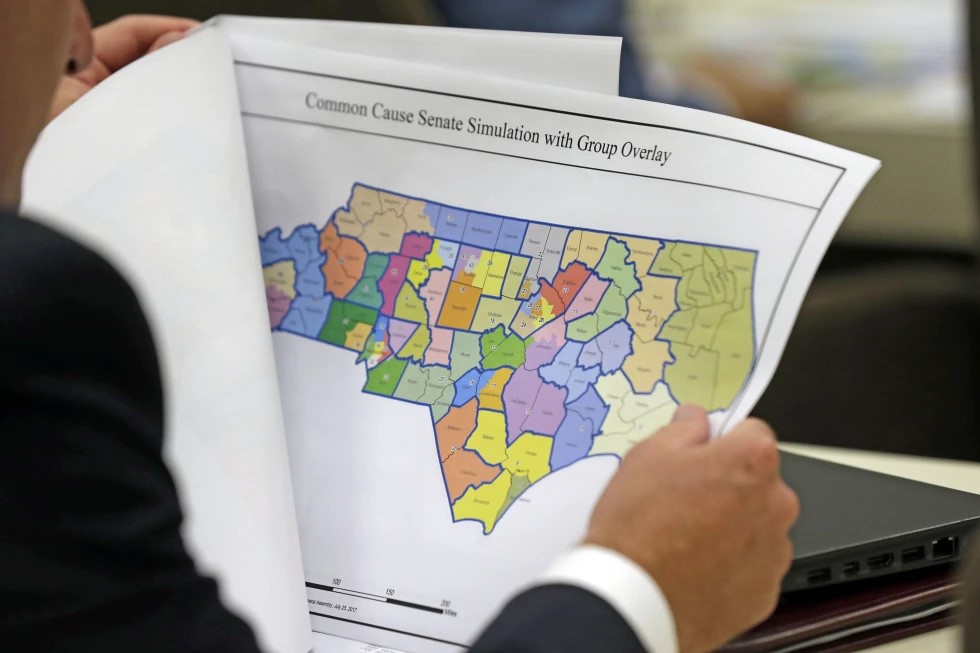
North Carolina Judges Grapple With Defining ‘Fair’ Elections in Redistricting SuitNorth Carolina judges are deciding whether a redistricting lawsuit claiming a state constitutional right to “fair" elections can go to trial.

North Carolina Gerrymander Ruling Gives Electoral Gift to GOP in CongressWritten by GARY D. ROBERTSON A North Carolina redistricting ruling has set up a possible electoral windfall for congressional Republicans in preserving their U.S. House majority next year, declaring that judges should stay out of scrutinizing seat boundaries for partisan advantage. While Democrats only need to flip five GOP seats overall to regain control, experts […]
›

